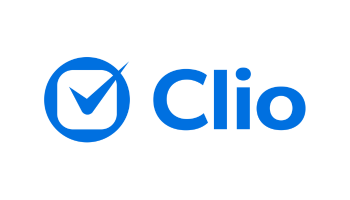Rapid advancements in legal tech have levelled the playing field between BigLaw and boutique firms, allowing smaller firms to compete effectively with a strong, affordable tech stack.
Advancements in Legal Technology
Advancements in technology have dramatically levelled the playing field between big law firms and smaller boutique firms. In the past, big law firms held the upper hand with large servers, hierarchical structures, and IT solutions tailored to traditional office setups. However, the legal landscape has shifted, allowing boutique firms to leverage innovative tools, cloud-based solutions, and agile platforms to meet the evolving needs of today’s market and compete more effectively with big law.
Cloud technology has transformed how legal professionals manage their practices by providing cost-effective solutions with unparalleled flexibility, remote access, and enhanced security. Small firms now have the ability to manage matters, billing, and document storage from anywhere, making it easier to adapt to the evolving needs of their clients and the industry at large.
AI is an emerging trend with the potential to revolutionise the legal industry, particularly for small practices. They are increasingly capable of reducing the burden of routine tasks, offering significant advantages in terms of efficiency and cost savings. These advancements allow small firms to better allocate their time and resources, enabling them to compete more effectively in a rapidly changing market. However, as AI continues to develop, it’s crucial for firms to ensure that they are using these tools in a way that is compliant with legal and ethical standards. The integration of AI into legal workflows should be approached with a focus on maintaining client confidentiality, data security, and adherence to regulatory requirements. By balancing the opportunities AI presents with a strong commitment to compliance, small legal practices can harness the power of these technologies while safeguarding their clients and their reputation.
Trends in the Industry
Clio‘s latest Legal Trends Report research highlights several key trends emerging among boutique practices, particularly around AI adoption. While there is clear interest in AI from both legal professionals and clients, this interest is not without caution. Fifty-eight percent of legal professionals believe AI isn’t yet advanced enough to be reliable, and 39% don’t trust it. There’s still a way to go on the adoption curve for AI across the profession.
Despite any scepticism, the barriers to AI adoption are perceived as low—only 8% of legal professionals and 28% of clients find AI software difficult to learn. This suggests that while trust needs to be built, the potential for AI integration in boutique practices is strong. Notably, 42% of lawyers believe AI can improve efficiency, and 31% think it will make legal services more affordable.
Boutique practices are well-positioned to capitalise on these trends. By gradually integrating AI, they can boost efficiency and make their services more affordable—all while addressing concerns around trust and reliability through clear communication with clients. Staying ahead in AI adoption isn’t just about keeping up; it’s about standing out and meeting the evolving expectations of today’s clients.
Clio predicts a bright future for smaller legal practices as solo and small firms are increasingly leveraging technology to navigate operational challenges and maintain competitiveness. Our 2024 Legal Trends for Solo and Small Firms reported that AI adoption is rising among these firms, with 21% of solo lawyers using AI compared to 19% across all firms. Notably, 40% of solo and 35% of small firms plan to adopt AI within the next six months, a higher rate than the 24% of larger firms. This proactive approach is enhancing efficiency, reducing billing lockup periods, and improving cash flow.
Affordable Tech
Affordable tech solutions like Clio level the playing field between boutique and BigLaw firms by providing advanced capabilities without the need for in-house IT support or long-term contracts. Clio automates routine tasks such as document management, billing, and client communication, allowing boutique firms to operate as efficiently as larger ones. With features like case management, time tracking, and online billing, Clio gives smaller firms access to cutting-edge technology, enabling them to compete, grow, and thrive in a competitive legal landscape.
We look forward to seeing you at the ALPMA Summit! Stop by our stand to learn more about how Clio can transform your practice with our no-lock in contracts, trust accounting and enterprise-grade security. Plus – enter our giveaway for a chance to win a tech pack valued over $1,000!




